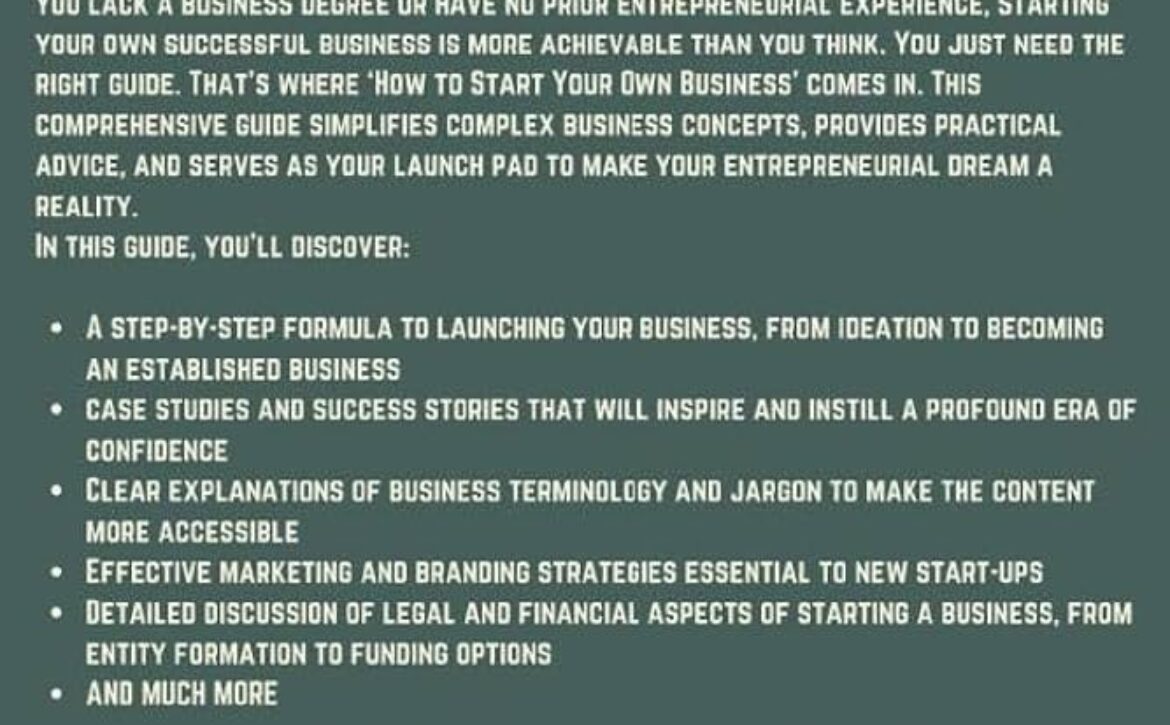
How to Become a Hotel Management Pro: Expert Tips
Imagine walking through the grand lobby of a luxurious hotel, knowing you are the mastermind behind every guest’s perfect stay. This isn’t just a dream—it’s a career in hotel management waiting for you to seize.
Whether you’re passionate about hospitality or eager to lead a team that creates unforgettable experiences, becoming a hotel manager could be your ideal path. But how do you get there? What steps should you take to ensure success in this dynamic industry?
You’ll discover the essential tips and strategies to guide your journey toward a rewarding career in hotel management. Get ready to unlock the secrets of this exciting field and transform your passion into a profession.

Skills For Success
Learning hotel management skills opens doors to a rewarding career. Strong communication and leadership are key. Understanding customer service and financial management is essential. Adaptability helps tackle challenges and ensures smooth operations. Teamwork and organization make daily tasks efficient.
To excel in hotel management, mastering key skills is crucial. These skills not only enhance your capabilities but also set you apart in a competitive industry. Whether you’re starting your career or looking to improve, focusing on these skills can be a game-changer.
Communication Mastery
Effective communication is the backbone of hotel management. Imagine managing a team where everyone knows exactly what to do because you’ve communicated clearly. This skill helps you build strong relationships with guests, ensuring their experience is memorable. Listening is just as important as speaking. Pay attention to feedback from guests and staff alike. Addressing concerns promptly shows you’re attentive and care about their experience.
Leadership And Team Building
Strong leadership inspires your team to achieve great things. Remember the last time a manager motivated you to perform better? That’s the power of good leadership. Creating a positive work environment boosts morale. Encourage collaboration and recognize achievements. Your team will be more productive when they feel valued and part of a supportive community.
Problem Solving Techniques
Every day brings new challenges in hotel management. The ability to solve problems quickly and efficiently is crucial. Whether it’s a last-minute booking issue or a maintenance problem, your quick thinking ensures smooth operations. Anticipating potential issues is also key. Train yourself to think ahead and develop contingency plans. This proactive approach minimizes disruptions and keeps guests satisfied.
Financial Acumen
Understanding the financial aspects of your hotel is vital. Managing budgets, analyzing financial reports, and making cost-effective decisions can significantly impact your hotel’s profitability. Consider how a small change, like adjusting room rates based on demand, can enhance revenue. Being financially savvy allows you to make informed decisions that benefit your hotel in the long run. Do you have what it takes to thrive in hotel management? Focus on these skills, and watch your career soar.
Education And Training
Becoming a hotel manager involves specialized education and hands-on training. Start with a degree in hospitality management. Then, gain practical experience through internships or entry-level jobs in hotels to develop essential skills.
Becoming a hotel manager is an exciting journey that blends hospitality with business acumen. A solid foundation in education and training is crucial for success in this field. You might wonder if formal education is really necessary. Well, it can open doors to more opportunities and help you climb the career ladder faster. Gain insights into the essential educational pathways and training opportunities that can set you on the right track to becoming a hotel management professional.
Degrees And Certifications
A degree in hotel management or hospitality can give you an edge. Programs often cover subjects like customer service, marketing, and financial management. You can find hotel management courses at universities and colleges worldwide. Some institutions even offer specialized courses in luxury hotel management or eco-friendly practices. Certifications can further boost your credentials. The Certified Hotel Administrator (CHA) certification is recognized globally and adds credibility to your resume.
Internship Opportunities
Internships offer invaluable hands-on experience. They let you apply what you’ve learned in real-world settings. Many hotels offer structured internship programs. These programs often rotate you through different departments like front desk, housekeeping, and food and beverage. Don’t underestimate the power of networking during your internship. Build relationships with mentors and peers. These connections can lead to job offers or recommendations in the future.
Workshops And Seminars
Workshops and seminars can keep you updated with the latest industry trends. They are usually short-term and focus on specific topics like digital marketing or customer experience. Attending a workshop can also help you develop soft skills. Communication, leadership, and team-building are vital in hotel management. You can find workshops both online and offline. Many industry associations and educational institutions offer them. Keep an eye out for those that offer certificates of completion to enhance your resume. Are you ready to take the leap and start your journey in hotel management? Consider these education and training avenues to set you on a path toward a rewarding career.
Industry Experience
Industry experience is crucial for a successful career in hotel management. It provides practical skills and insights that are invaluable. Experience helps you understand the dynamics of the hospitality industry. It shapes your ability to manage teams, solve problems, and ensure guest satisfaction. Starting from the ground up, gaining experience in various roles is essential.
Entry-level Positions
Begin with entry-level positions like front desk or housekeeping. These roles offer a firsthand look at daily operations. They help build a strong foundation in customer service. You’ll learn how to handle guest inquiries and resolve issues. These positions teach the importance of attention to detail. They also provide a chance to observe managerial tasks and strategies.
Career Advancement Strategies
Developing a clear career plan is important for advancement. Set specific goals and seek opportunities for growth. Consider roles in different departments to broaden your skills. Enhance your qualifications with relevant certifications. Regularly assess your progress and adjust your strategies. Take on additional responsibilities to demonstrate leadership potential.
Networking In Hospitality
Networking is vital in the hospitality industry. Attend industry events and join professional associations. Connect with peers and mentors who can offer guidance. Share experiences and learn from industry veterans. Networking opens doors to new opportunities. It helps you stay updated on industry trends and best practices. Building a strong network supports your career growth.

Technology In Hotel Management
Technology has transformed hotel management into a dynamic field. It streamlines operations and enhances customer experiences. Hotel managers must understand modern technology trends. Embracing these tools ensures efficient processes and satisfied guests.
Software Tools
Software tools are essential in hotel management. They handle reservations, staffing, and inventory. Managers use them to track room availability. These tools simplify billing and customer service. Many hotels rely on these software solutions daily.
Digital Marketing
Digital marketing plays a crucial role in attracting guests. Social media platforms are used to promote special offers. Hotel websites showcase facilities and services. Email campaigns inform subscribers about events and discounts. Effective digital marketing boosts hotel visibility and reputation.
Online Booking Systems
Online booking systems are vital for guest convenience. They allow customers to book rooms anytime. These systems provide instant confirmation and secure payment options. Guests can view available rooms and prices easily. Hotels benefit from reduced manual booking errors. Online systems improve efficiency and guest satisfaction.
Guest Experience Enhancement
Guest experience enhancement is a key part of hotel management. It focuses on improving every visitor’s stay. Happy guests lead to positive reviews and return visits. This section will explore how to elevate guest experiences.
Customer Service Excellence
Great customer service begins with a smile. Staff should greet guests warmly. Offer help before guests ask for it. Listening is crucial. Understand guest needs and act promptly. This creates a welcoming atmosphere.
Feedback Utilization
Feedback is vital for growth. Encourage guests to share thoughts. Use surveys or comment cards. Analyze feedback regularly. Address issues quickly. Implement changes based on feedback. This shows guests their opinions matter.
Creating Memorable Experiences
Memorable experiences make guests return. Focus on personalization. Remember guest preferences. Offer unique local experiences. Surprise guests with small gestures. A handwritten note or special treat. These details create lasting memories.
Sustainability Practices
Becoming a hotel management expert involves mastering sustainability practices. These practices not only save resources but also attract eco-conscious guests. Understanding these methods is crucial for future hotel leaders.
Eco-friendly Initiatives
Hotels can adopt eco-friendly initiatives to reduce waste. Use biodegradable products for cleaning and toiletries. Encourage guests to reuse towels and bed linens. Install water-saving devices in bathrooms. Opt for sustainable materials in construction and renovation.
Energy Conservation
Conserving energy is vital for sustainable hotel management. Install energy-efficient lighting throughout the property. Use smart thermostats to control heating and cooling. Encourage staff to switch off equipment when not in use. Regularly maintain appliances for better efficiency.
Community Engagement
Engaging with the community strengthens sustainability efforts. Partner with local businesses for sourcing goods. Support community projects focused on environmental conservation. Host events to raise awareness about sustainability. Volunteer in local eco-friendly initiatives to make an impact.
Trends And Innovations
Hotel management is evolving rapidly. New trends and innovations shape the industry. Managers must adapt to stay competitive. Understanding these shifts is key for success.
Luxury Vs. Budget Hotels
Luxury hotels focus on unique experiences. They offer personalized services and exclusive amenities. Guests expect top-notch comfort and attention. Budget hotels emphasize affordability. They attract travelers seeking basic accommodations. Both types have distinct challenges and opportunities.
Wellness Tourism
Wellness tourism is gaining popularity. Travelers seek relaxation and health benefits. Hotels now offer spa treatments, yoga classes, and wellness programs. These services cater to guests’ physical and mental well-being. Managers must incorporate wellness into their offerings.
Personalization In Services
Personalization enhances guest experiences. Hotels gather data to understand preferences. Customized services make guests feel valued. From room settings to dining choices, personalization is essential. Technology plays a significant role in achieving this.

Frequently Asked Questions
What Qualifications Are Needed For Hotel Management?
To pursue hotel management, a degree in hospitality or a related field is ideal. Courses in hospitality management, customer service, and business administration are beneficial. Internships and on-the-job training can enhance practical skills and understanding of the industry.
How Long Does It Take To Study Hotel Management?
A bachelor’s degree in hotel management typically takes three to four years. Certificate and diploma programs can range from six months to two years. The duration varies based on the level and type of program you choose.
Is Hotel Management A Good Career Choice?
Hotel management offers diverse career opportunities and growth potential. The industry is dynamic and constantly evolving, providing challenges and learning experiences. With globalization, the demand for skilled professionals in hospitality is rising, making it a promising career choice.
What Are Key Skills For Hotel Management?
Key skills include strong communication, leadership, and customer service abilities. Problem-solving, attention to detail, and multitasking are crucial. Understanding cultural diversity and having financial acumen are also important for success in hotel management.
Conclusion
Pursuing a career in hotel management can be rewarding. Focus on gaining experience and building strong skills. Education plays an important role, but practical knowledge is key. Networking helps you find opportunities and learn from experts. Start with entry-level jobs to understand the industry better.
Keep learning and stay updated with new trends. This path requires dedication and a passion for hospitality. With patience and hard work, you can achieve success in hotel management. Embrace challenges and enjoy the journey. The world of hospitality is vast and full of opportunities.
Your dream career awaits.





